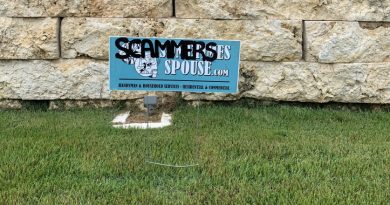Franchise Attorney Kevin Murphy Debunks the Value of the Franchise Disclosure Document (FDD)
(UnhappyFranchisee.Com) Franchise Attorney Kevin B. Murphy Debunks the Value of the Franchise Disclosure Document (FDD) in the due diligence process as part of our “Debunking Dangerous Franchise Myths” series.
Recently, UnhappyFranchisee.Com publisher Sean Kelly took on International Franchise Association (IFA) representatives on a National Public Radio show on franchising.
As usual, the IFA tried to spread the usual franchise myths, portraying franchising as a highly regulated industry with very little reason for would-be franchisees to do intensive due diligence.
San Francisco-based franchise attorney Kevin B. Murphy was listening in to the streaming broadcast.
Murphy – himself a former franchise owner – took special exception to the IFA’s overreaching characterization of the Franchise Disclosure Document (FDD) as a font of true and useful information.
What follows is Kevin B. Murphy’s debunking of the reliability and usefulness of the FDD in the due diligence process.
Franchise Attorney Kevin B. Murphy on the Franchise Disclosure Document (FDD)
 Based on my 34-years as a San Francisco-based, franchise-only attorney, former franchise owner of a very successful franchise (so I don’t just “talk the talk,” but have actually walked the walk), and court-accepted, testifying franchise expert – known in the industry as “Mr. Franchise.”
Based on my 34-years as a San Francisco-based, franchise-only attorney, former franchise owner of a very successful franchise (so I don’t just “talk the talk,” but have actually walked the walk), and court-accepted, testifying franchise expert – known in the industry as “Mr. Franchise.”
1. “FDD’s disclose valuable contract info.”
All the FDD does is list a series of tables that reference sections in a complex franchise agreement. Typical franchise agreements are loaded with legalese and can exceed 150-pages. It’s only “valuable” to franchise attorneys who charge $500/hour to review the tables and then delve into associated contract references.
[Pictured, Left, franchise attorney Kevin B. Murphy]
2. “FDD’s disclose valuable financial performance information in Item 19”
Less than 20% of franchisors “elect” to provide any info in Item 19 [Financial Performance Representation].
Those that do, usually provide very incomplete data, like only gross sales, or gross sales plus a couple expense items. Even the mighty McD doesn’t give complete sales and expense detail in its Item 19. Gross sales and certain expenses are included. But major expenses are not (like rent, interest, D & A, and others).
3. “FDD’s disclose a list of all departed franchise owners”
Actually, the FDD only discloses owners who departed the system in the most recently completed year.
4. “FDD’s disclose all franchise owners who I can call and talk to and find out the real story”
That’s correct – all franchise owners as of the most recent year are listed. Problem is almost all franchise owners over-estimate their franchise performance. They’d like you to join their ranks (and probably misery). I’ve represented scores of prospective franchisees who considered buying an existing franchise. In one (which is par for the course) the franchise owner started out saying he was “making great money.” Due diligence, including a review of his tax returns, showed “great money” was actually fifty-cents per hour. Which might be great money if you happened to live in India, or Vietnam.
5. “Franchising is a heavily regulated industry.”
Only a small minority of states have franchise relationship laws, and franchise registration laws. Even in these, there is no due diligence review. They just collect their filing fee, due a cursory review of the financials to see if a franchise fee deferral is required, and that’s about it.
Unlike China, which requires a number of proven company-owned prototypes and management team in place for several years before franchising is allowed, the U.S.A. has absolutely no requirements or minimum standards to franchise – just provide an FDD before a sale.
Although the federal FTC Rule applies in all states, it is entirely without “teeth.” There is no private cause of action allowed for injured, defrauded franchisees. Due to extensive lobbying, only the FTC can initiate its own “enforcement action.” Of course, this presumes it has the budget to do so. Not surprisingly, no enforcement actions have been taken by the FTC since the 1990’s.
[Also read IS FRANCHISING HIGHLY REGULATED? Top Franchisee Attorneys Weigh In]
Other observations:
• I’d say less than 10% of prospective franchisees consult an attorney (franchise or otherwise) before signing a franchise agreement. They’re told by the Franchisor up front “we don’t negotiate our contract” and conclude: “why bother to pay an attorney anything, if nothing is negotiable.”
• Of the 10% that do use a franchise (or other) attorney, most are pre-sold. They’re only looking for validation of their buying decision.
• If they do use a franchise attorney, most only look at the legalese, which is a lot less than half the story. Financial, management and other critical issues are not addressed because, quite frankly, they’re not trained in these and it doesn’t even hit their radar. For example, I completed a comprehensive FDD Evaluator some time ago and unfortunately it was a “two-thumbs down, way down” for some issues that there so serious they were terminal and couldn’t be dealt with. The client wisely took my advice and walked away. Then, a couple weeks later, I get a call from another lady who bought this exact franchise two years ago and encountered the same issues I’d found, but at a cost to her of over $450k by the time she was “all-in,” which included all of her savings and retirement accounts. Turns out, the recommended “prominent franchise attorney” she used didn’t mention any of the big-picture issues I found – just recommended some tweaking of a couple provisions in the contract, like changing a notice period from 30 days to 45 days, etc.
Again, very few franchise attorneys have an MBA and virtually none have ever owned and operated a franchise before – so their review focus is just on the legal, which is a lot less than half the story.
For more information about the author, check out his listing: Kevin B. Murphy, Franchise Attorney
ARE YOU FAMILIAR WITH THE FRANCHISE DISCLOSURE DOCUMENT? DO YOU AGREE WITH KEVIN MURPHY THAT IT’S NEARLY WORTHLESS? SHARE A COMMENT BELOW.
TAGS: Franchise Disclosure Document, FDD, Franchise due diligence, franchise attorney, franchisee attorney, Kevin B. Murphy, franchise attorney Kevin Murphy, buying a franchise, researching a franchise, franchise opportunities


We are in the process of arbitration with a franchise and gettin an attorney and CPA involved in the beginning would of saved me from being where I am today. I urge anyone thinking about a franchise…pay the money up front to ensure this is right for you because after you are in it and want to get out it is a NIGHTMARE!!!!
MATCO TOOLS JUST RETIRED SO I COULD GET OUT I WOULD ADVISE MY WORST ENEMY TO GET INVOLVED WITH MATCO TOOLS DO NOT CARE ABOUT THERE DISTRIBUTORS AT ALL